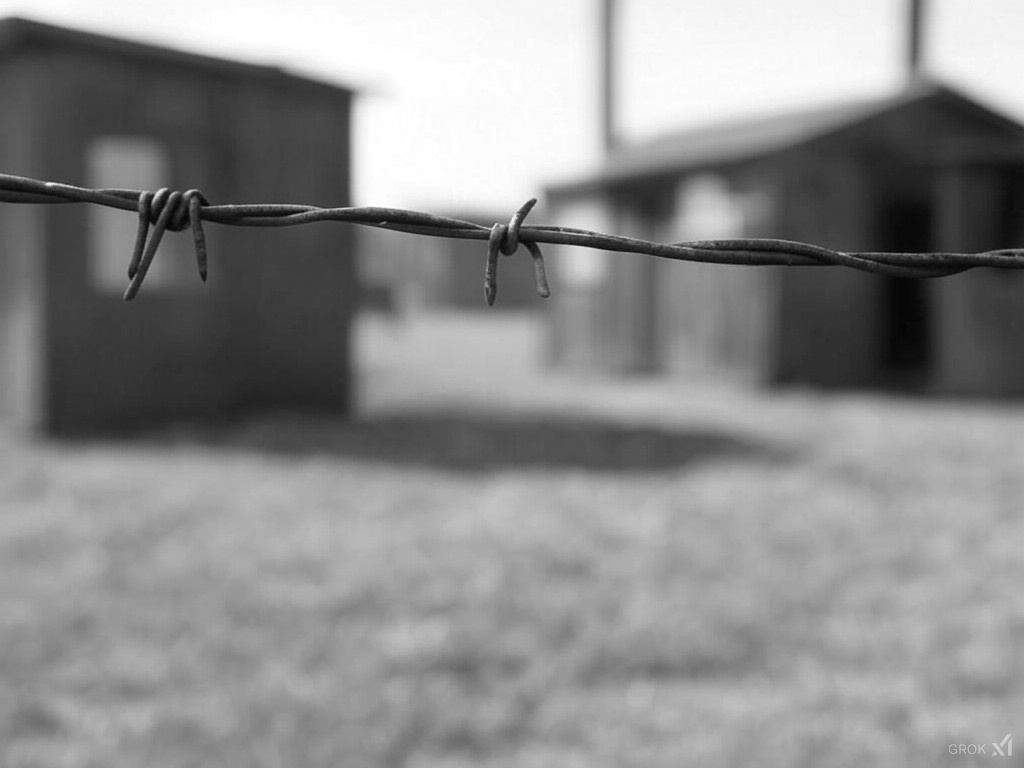Auschwitz Liberation at 80 - the Scars of Inhumanity

27 January 2025
On January 27, 1945, the Red Army entered the gates of Auschwitz-Birkenau, a name that would become synonymous with the darkest chapter of human history. Today marks the 80th anniversary of that moment.
Pyotr, a seventeen-year-old Russian soldier, describes that grim chapter's ending.
The air was thick with the scent of burnt wood and something else, an indescribable stench that clung to the cold air. As we approached, the camp loomed like a nightmare, its reality far beyond what any of us had been prepared for by war.
The first thing that hit me wasn't the sight but the sound—or rather, the lack of it. Silence, heavy and oppressive, hung over the camp like a fog. And then, there were the faces. Gaunt, hollowed, eyes wide with a mixture of terror and hope. They were the survivors, the ones too weak to be dragged on the death marches ordered by the SS just days before. Their presence was a stark contrast to the camp's emptiness, which whispered of the thousands who had been here but were no longer.
I remember the shock; it coursed through me like an electric current. Here was humanity stripped bare, not just of possessions, but of dignity, of life itself. We found warehouses filled with the belongings of the dead: shoes, glasses, hair. Each item told its own silent tale of loss. The horror of it all was overwhelming; it was as if the very ground was saturated with the grief of the murdered.
This wasn't just a camp; it was a machine designed for annihilation. The crematoria, though sabotaged by the fleeing Nazis, stood as silent witnesses to the scale of their crimes. They had tried to erase the evidence, but the evidence was everywhere—in the piles of ashes, in the barracks where the living dead were stacked like logs, in the very air we breathed.
As we moved through Auschwitz, we weren't just soldiers; we became the first to bear witness to what humanity could do to its own. The realization dawned on me that this war wasn't just about territories or ideologies; it was about the survival of human decency against the most barbaric forces.
This experience, however, did more than just shock; it educated. It taught me about the fragility of civilization. The Nazis had turned Auschwitz into a factory of death, where efficiency was measured by how many lives could be extinguished in a day. It was a chilling lesson in what happens when hatred is institutionalized, when the state turns against its own citizens, or in this case, against millions deemed unworthy of life.
Reflecting on this, I understand now why we fight—not just to defeat an enemy, but to uphold a principle that all humans are equal, that no one should ever again suffer what these people have endured. The liberation of Auschwitz wasn't about celebrating victory; it was about mourning what should never have been lost and pledging to ensure it never happens again.
The world needs to hear this. Not just the facts, which are horrifying enough, but the stories of survival, of human spirit against all odds. Each survivor is a testament to resilience, a beacon of what it means to reclaim one's humanity from the depths of despair. Their stories are not just theirs; they belong to us all, serving as a reminder of where unchecked hatred can lead.
As we walked through the camp, laying eyes on the remnants of such cruelty, I felt a responsibility settle upon my shoulders. We weren't just liberating a place; we were liberating a truth that the world had to face. The truth of Auschwitz is that it happened not by some cosmic accident but by the deliberate acts of men, and thus, it could happen again if we forget or fail to teach.
This anniversary is not just a nod to history but a call to action. We must remember, educate, and above all, ensure that the lessons of Auschwitz resonate through time. For me, a young soldier who saw too much too soon, Auschwitz is a solemn vow to keep fighting for a world where such camps are only a dark memory, never a present reality.
(While Pyotr is imagined, the horror was real)
